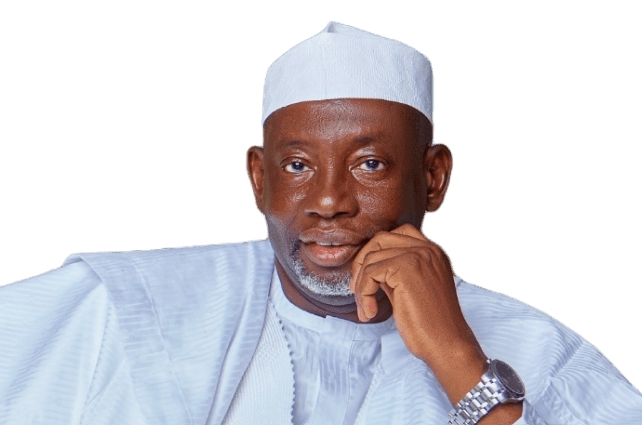
By Kabir Musa Ringim
Two weeks ago, I visited a friend at the new state secretariat in Dutse and witnessed massive renovation work being undertaken by the state government. It warmed my heart, to say the least, because this same secretariat—built by Governor Sule Lamido—had been almost abandoned for eight years under the previous administration.
After leaving the secretariat, I passed through the G9 quarters en route to a private clinic for a medical checkup. There, I was amazed and utterly flabbergasted by the total overhaul of the nine mega houses. These beautiful structures, also constructed by Sule Lamido to serve as lodges for visiting dignitaries, had been transformed beyond recognition. I recalled spending a night in one of those houses four years ago and crying myself to sleep after witnessing its dilapidated state.
About two months prior to my secretariat visit, I went to check on a house I own in Dutse, which I had rented out to a tenant. To my shock, it was marked for demolition. I inquired with my brother, who oversees the property, and he informed me that a new road project—stretching from Raudah Clinic to Danmasara Junction—would pass through it. The government had scheduled proper compensation for affected properties. I wasn’t sure whether to feel sad or happy; it was the first house I ever owned, and I’m emotionally attached to my long-term possessions. Yet, I felt elated that our state government is delivering by building this road, alongside other projects in the capital, including the dualisation of the only access road to the ancient Garu neighbourhood.
As a resident of Skan Homes Estate in Galamawa, I woke up one day to see a new housing estate springing up in nearby Limawa. This is in addition to another estate in Fanisau and similar developments in Ringim, Hadejia, Kafin Hausa, Kazaure, Gumel, Babura, and Birnin Kudu. Notably, from 2015 to 2023, not a single housing estate was initiated, built, or completed across the state!
Moreover, a large building is under construction near us in Limawa, which I learned is a mega skills acquisition centre spearheaded by the state government. Meanwhile, the old skills acquisition centre—also built by Sule Lamido in Limawa—is being upgraded simultaneously. This is beyond impressive; it’s a clear sign that the state government is committed to creating jobs and empowering citizens.
Last week, while travelling from Dutse to Ringim to pay Sallah homage to my aged parents, I noticed a cleared space opposite the new housing estate in Fanisau. A signboard indicated that a new specialist hospital is underway there. Similarly, on a previous trip to Hadejia, I saw a new hospital being built in Kafin Hausa, and I learned another is under construction in my hometown, Ringim. I’m unsure if similar hospital projects are ongoing in other towns, but with these numerous significant initiatives, I’m thrilled to say that Governor Mallam is determined to surpass Lamido’s achievements. He’s building on them and entrenching a much-needed culture of continuity with his predecessors’ projects. I sincerely hope he succeeds in this regard.
Democracy is far from perfect, but its greatest merit, in my view, is the ability to change leadership—whether for better or worse. People like me, who have been unapologetically pro-Jigawa since childhood, were saddened and apprehensive when Sule Lamido left the Government House in 2015. Our dismay deepened when the subsequent administration proved anything but progressive. Now, Mallam is wiping away our tears and reviving our hope of making Jigawa the most developed and prosperous state in the North!
Another positive impact of this administration is its approach to debt settlement. As it stands, Jigawa is the least indebted state in the country. Clearly, Mallam is not taking new loans; instead, he’s settling the small debts inherited from past administrations while delivering remarkable projects and paying workers’ salaries promptly. I can say without fear of contradiction that Jigawa’s civil servants—including myself—enjoy the best salary package in the North.
I’ve been silent for a long time and hadn’t written a single article on politics or governance since this administration began. I was busy observing developments with keen interest. Perfection belongs to Allah alone, but so far, I have only two grievances with Mallam’s government. First, the Ramadan feeding program, which I see as a misplaced priority that benefits contractors more than the poor and hungry masses. Second, the multi-billion-naira contract awarded to a foreign consulting firm to transform the basic education sector—a move I may not fully understand as an outsider. I ask for pardon if I’ve misjudged the intended benefits or outcomes of this project.
Beyond these concerns, the state government has initiated numerous positive projects and programs—too many to fit into one article. The agricultural transformation, the creation of a new ministry and other key agencies, the IT revolution, the push for self-reliance through investments, and the appointment of capable individuals to sensitive, knowledge-driven positions are all topics I’ll reserve for another day, Insha Allah.
For those who know me well, the politician I supported most wholeheartedly in the past was Sule Lamido. This is why I once backed his son’s gubernatorial candidacy, hoping he would sustain and build on his father’s legacies. Now, Governor Umar Namadi is doing that and much more. He’s performing far beyond expectations, winning my heart and earning my full support as he relentlessly works to make Jigawa great.
This article is penned to celebrate the governor as a beacon of hope and the architect of the modern Jigawa of our dreams. Sir, as you turn 62, I wish you good health and wisdom to continue steering our dear state toward prosperity. I pray you leave lasting legacies that our children and grandchildren will be proud of. Happy Birthday!




































